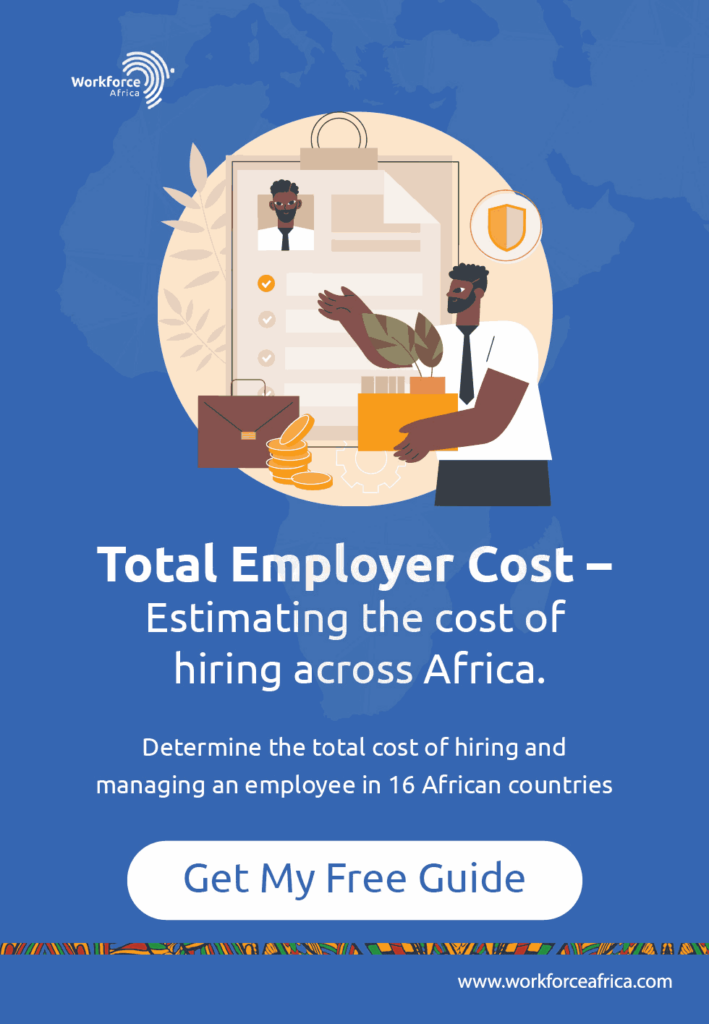

This article explores how businesses can capitalise on outsourcing to reduce operational costs and enhance efficiency across Africa.
It highlights key strategies for leveraging outsourcing solutions, enabling companies to optimise resources, scale operations, and unlock growth potential in the African market.
Africa's growing economic landscape offers vast opportunities for businesses to expand and thrive. One of the most effective strategies for maximising these opportunities is outsourcing.
By delegating non-core tasks to external providers, companies can significantly reduce costs, improve operational efficiency, and focus on core business activities.
This article explores the cost-saving potential of outsourcing within the African context, examining how businesses can strategically tap into local expertise and resources while navigating regional complexities.
From startups to established multinationals, leveraging outsourcing solutions can unlock new avenues for growth, allowing companies to scale smartly and achieve long-term success in Africa's diverse markets.
Outsourcing has surfaced as a powerful strategy for businesses looking to maximise opportunities in Africa.
Companies can significantly reduce costs by strategically outsourcing certain functions while enhancing overall performance. Here's how to approach this effectively:
Identify Core and Non-Core Activities
Identify core and non-core business activities. Core activities directly contribute to your competitive advantage and should remain in-house.N
on-core activities, such as payroll processing, IT support, and customer service, can be outsourced to specialised providers. This lets your internal team focus on strategic initiatives that drive growth.
Choose the Right Outsourcing Partners
Selecting the right outsourcing partners is crucial.
Look for provider with an established track record in the African market, strong expertise in the specific functions you wish to outsource, and a commitment to quality and compliance.
Conduct thorough due diligence, including checking references and reviewing case studies, to ensure they align with your business goals and values.
Cost Management
Setting up an entity abroad involves significant costs, including registration fees, legal expenses, and ongoing operational costs.
Budgeting for these expenses and exploring cost-effective solutions, such as partnering with local firms, can help manage financial risks.
Talent Acquisition
Hiring local talent is often necessary to navigate the local market effectively. Understanding local labour laws and cultural nuances is important for building a competent and cohesive team.
Risk Mitigation
Political instability, economic fluctuations, and currency risks are inherent in global expansion. A robust risk management strategy safeguards the business, including insurance and contingency planning.
Technology and Infrastructure
Technology plays a crucial role in entity management, enabling businesses to streamline operations and ensure efficient communication across borders.
Investing in reliable infrastructure, such as cloud-based systems for data management and communication tools for remote teams, supports seamless integration and scalability.
Recommended Post: Common Offshoring Mistakes to Avoid When Outsourcing to Africa
For startups aiming to scale smartly, entity solutions offer a strategic pathway to unlock growth potential. Here are the key advantages:
Entity solutions simplify the process of entering new markets by providing a structured approach to setting up operations.
This includes navigating local regulations, securing necessary permits, and establishing a legal presence, which can significantly reduce the time and complexity involved in market entry.
Establishing a local entity enhances a startup's credibility with the target market's customers, partners, and investors.
It demonstrates a commitment to the region and builds trust, which is crucial for business growth and long-term success.
By setting up a local entity, startups can tap into the local talent pool, which is essential for understanding and catering to the market's unique needs.
Local employees bring valuable insights and connections that can drive innovation and customer engagement.
Entity solutions can offer significant financial benefits. They can provide access to tax incentives and grants available to local businesses.
Additionally, having a local entity can streamline financial operations, including banking and currency management, leading to substantial cost savings and improved financial control.
Operating through a local entity helps mitigate risks associated with international expansion.
It provides a legal framework to handle disputes, comply with local laws, protect intellectual property, safeguarding the startup's interests.
Entity solutions are designed to support growth. They provide the flexibility to scale operations up or down based on market conditions, enabling startups to adapt rapidly and efficiently to changing circumstances
For established multinationals, entity solutions are pivotal in enhancing global operations. Here are the key benefits
Streamlined Compliance
Multinationals must navigate a complex web of regulations across different countries.
Corporate entity management provides a structured framework to ensure compliance with local laws, including tax regulations, employment standards, and corporate governance.
This reduces the threat of legal issues and financial penalties, providing a sense of reassurance in the face of legal complexities.
Operational Efficiency
Multinationals can streamline their operations by establishing local entities. This includes optimising supply chains, improving logistics, and enhancing customer service.
Local entities can respond more quickly to market demands and operational challenges, leading to increased efficiency and customer satisfaction.
Market Adaptability
Entity solutions enable multinationals to adapt their services to meet local market needs.
This localisation strategy can involve tailoring marketing campaigns, adjusting product features and aligning with cultural preferences.
Which can significantly boost market penetration and customer loyalty, instilling a sense of confidence in understanding and meeting local market needs.
Financial Optimisation
Operating through local entities can provide financial advantages, such as access to local financing options, tax benefits, and incentives.
It also simplifies financial management by allowing transactions in local currencies and reducing the complexities of cross-border financial operations.
Risk Mitigation
Entity solutions help multinationals manage risks associated with international operations.
This includes protecting intellectual property, ensuring legal recourse in disputes, and maintaining compliance with local regulations.
A robust legal framework helps safeguard the company's assets and reputation.
Strategic Flexibility
Having local entities allows multinationals to scale operations up or down based on market conditions.
This agility is crucial for responding to economic fluctuations, political changes, and evolving market trends, fostering a sense of adaptability in the face of changing market conditions.
Foster Continuous Improvement
Encourage a culture of continuous improvement within your payroll team. Review processes regularly and seek feedback from employees to identify areas for enhancement.
Staying proactive and adaptable will help maintain the effectiveness of your payroll strategy over time.
Partnering with a trusted entity solutions provider can be a game-changer for startups and multinationals aiming to scale smartly. Here are the key advantages
Expert Guidance
Entity solutions providers bring extensive knowledge and experience in navigating the complexities of international expansion.
They offer expert legal, financial, and operational guidance, ensuring businesses comply with local regulations and avoid costly mistakes.
Time Efficiency
Setting up and managing entities in foreign markets can be time-consuming. A trusted provider streamlines this process, handling everything from registration to ongoing compliance.
This allows businesses to concentrate on their core activities and accelerate their market entry.
Cost Savings
While hiring an entity solutions provider can be costly, the long-term savings can be substantial.
Providers help businesses avoid fines, reduce legal fees, and optimise tax strategies.They also offer scalable solutions that can adapt to the company's growth, ensuring cost-effective operations.
Risk Management
A reputable provider helps mitigate risks by ensuring local laws and regulations compliance.
They offer robust frameworks for managing legal disputes, protecting intellectual property, navigating political and economic uncertainties, and safeguarding the business's interests.
Local Insights
Entity solutions providers have deep local knowledge and connections.
They can offer valuable insights into market trends, cultural nuances, and business practices, helping companies tailor their strategies to the local context and enhance their competitive edge.
Strategic Flexibility
Partnering with a provider offers strategic flexibility, allowing businesses to scale operations up or down based on market conditions.
This agility is crucial for responding to changing market dynamics and seizing new opportunities.
In conclusion, the path to successful scaling lies in selecting the right entity solutions provider tailored to your organisation's needs.
These approaches provide startups with a guideline for growth, while helping larger corporations optimize their operations and improve regulatory compliance.
As the market evolves, embracing effective entity solutions will be important for organisations aiming to maintain competitive advantages and drive sustainable growth.
Investing in the right support system like Workforce Africa can lead to transformative outcomes, paving the way for lasting success. Schedule a free consultation today